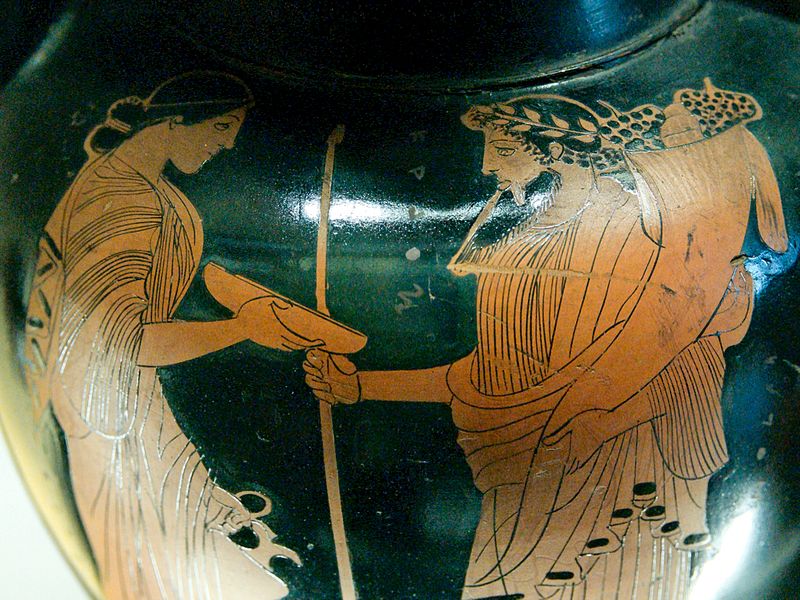
The story of Demeter, Hades and Persephone was perhaps symbolic of the changing seasons and the perennial change from life to death, to life once more, or in other words, the changes from the summer to winter months and the return of life in spring as seen in agriculture. Finally, as a compromise, it was decided that Persephone would be released but that she would have to return to Hades for one-third of the year (or in other accounts one-half). In other versions of the myth, Persephone could have been released if she had not eaten anything in the underworld during her captivity, but at the last moment, Hades gave her a pomegranate seed. Before giving her up though, the wily Hades put a pomegranate kernel in the girl's mouth, knowing its divine taste would compel her to return to him. As the drought claimed ever more victims, Zeus finally sent Hermes to persuade Hades to release his ill-gotten bride. Once the temple was completed, Demeter withdrew from the world and lived inside it at the same time, she created a great drought to convince the other gods to release Persephone from Hades. Persephone could have been released from Hades if she had not eaten anything in the Underworld during her captivity, but at the last moment, Hades gave her a pomegranate seed. In the Roman world the goddess was known as Proserpina. In various other myths, Persephone is the mother of Dionysos (with Zeus, who is also her father) - although Semele is the more usual candidate - and squabbles with Aphrodite for the attentions of devilishly handsome Adonis, the two settling to share the famous lover in split shifts. In this guise, she was seen as a protectress in the after-life, although Hesiod repeatedly describes her as 'dread Persephone' in his Theogony.


In Greek mythology, the goddess, as wife of Hades, is the Queen of the Underworld and takes her other name, Persephone.

In this guise she is most often referred to as Kore, signifying both 'daughter' and 'maiden'. In many ancient cults the goddess, along with her mother Demeter, is associated with vegetation and grain. An important element of the Eleusinian Mysteries and the Thesmophoria festival, the goddess was worshipped throughout the Greek world and frequently appeared in all forms of Greek art. Persephone (aka Kore) was the Greek goddess of agriculture and vegetation, especially grain, and the wife of Hades, with whom she rules the Underworld.


 0 kommentar(er)
0 kommentar(er)
